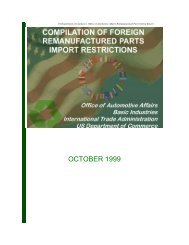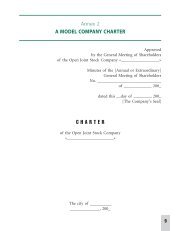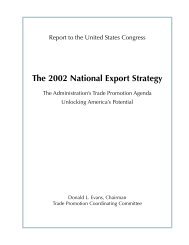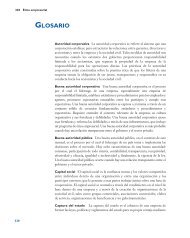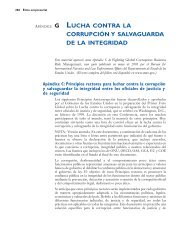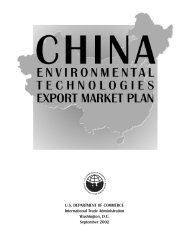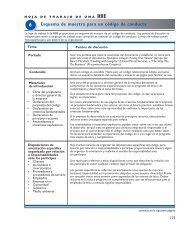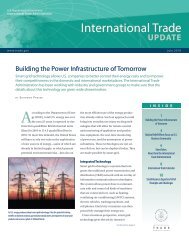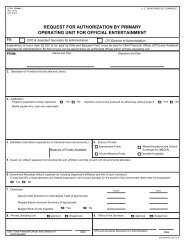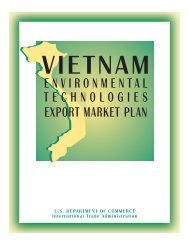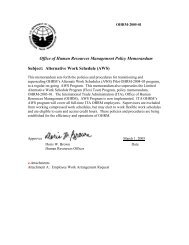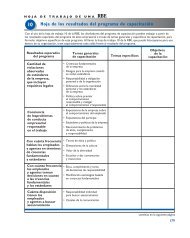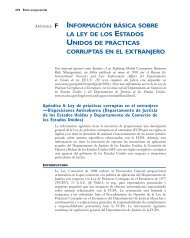Global Steel Trade; Structural Problems and Future Solutions
Global Steel Trade; Structural Problems and Future Solutions
Global Steel Trade; Structural Problems and Future Solutions
You also want an ePaper? Increase the reach of your titles
YUMPU automatically turns print PDFs into web optimized ePapers that Google loves.
government <strong>and</strong> private sector assistance to implement market reforms of the steel industry in Russia<br />
<strong>and</strong> Ukraine. The Committee should convene a meeting of experts from member states <strong>and</strong> international<br />
organizations to discuss how broader assistance programs can be focused on the market reforms of the<br />
steel industry in Russia <strong>and</strong> Ukraine.<br />
• Elimination of formal <strong>and</strong> informal import barriers to steel. Despite substantial strides in reducing<br />
barriers to imports, there continue to be significant barriers remaining, including market sharing<br />
arrangements among companies, high tariffs <strong>and</strong> import fees, <strong>and</strong> nontransparent certification <strong>and</strong><br />
import requirements. The Committee should analyze these barriers as they pertain to steel trade <strong>and</strong><br />
make specific recommendations to members regarding their findings.<br />
• Examination of the role of trading companies <strong>and</strong> steel distributors in global steel trade. The<br />
OECD should conduct a study <strong>and</strong> establish a dialogue at the committee’s meetings to increase the<br />
underst<strong>and</strong>ing of steel distribution <strong>and</strong> trading in OECD <strong>and</strong> non-OECD countries. The topics could<br />
include (1) the role of trading companies, (2) the role of service centers in key markets, <strong>and</strong> (3) the<br />
difference between traders that hold inventory <strong>and</strong> those that do not.<br />
In addition, the United States will request that the OECD <strong>Steel</strong> Committee place the following item on its<br />
agenda.<br />
Examination of Official Export Credit Financing for <strong>Steel</strong><br />
Projects <strong>and</strong> the Impact on <strong>Steel</strong> Overcapacity<br />
Although official export credit support for steel projects has declined in recent years, such financing<br />
can contribute to global overcapacity. Accordingly, the United States will ask that the <strong>Steel</strong><br />
Committee review the impact of official export credit financing on steel overcapacity <strong>and</strong> consider<br />
whether a request should be made to the OECD Working Party on Export Credits <strong>and</strong> Credit<br />
Guarantees that it limit official export credit support for projects that substantially increase global<br />
steel capacity.<br />
Restrict Government <strong>and</strong> Multilateral Development Bank<br />
Lending on Exp<strong>and</strong>ed <strong>Steel</strong> Capacity<br />
The President’s 1999 <strong>Steel</strong> Action Program set forth a commitment to oppose international financial<br />
institution lending that increases subsidized steel production. We continue to be concerned about<br />
government intervention <strong>and</strong> support for the creation of additional steelmaking capacity around the world<br />
despite the mature condition of the global steel industry. Such programs contribute to the expansion of<br />
economically unjustifiable global steel capacity.<br />
To address these concerns, we recommend the following actions to restrict government <strong>and</strong> multilateral<br />
development bank financing for projects which substantially increase global steel capacity.<br />
Seek a Moratorium on Multilateral Development Bank<br />
Lending that Substantially Increases<br />
Overseas <strong>Steel</strong> Production<br />
The U.S. government will seek a moratorium on lending by the multilateral development banks for projects<br />
that substantially increase steel production capacity overseas. Exceptions to this policy may be made in the<br />
case of projects in the least developed countries (as determined by International Development Associationonly<br />
eligibility in the World Bank). 4 In implementing this moratorium, we will take into account the U.S.<br />
policy of encouraging privatization of state-owned steel mills, provided that no government subsidies are<br />
involved in the privatization.<br />
Chapter 7: Avoiding <strong>Future</strong> Crises 185



